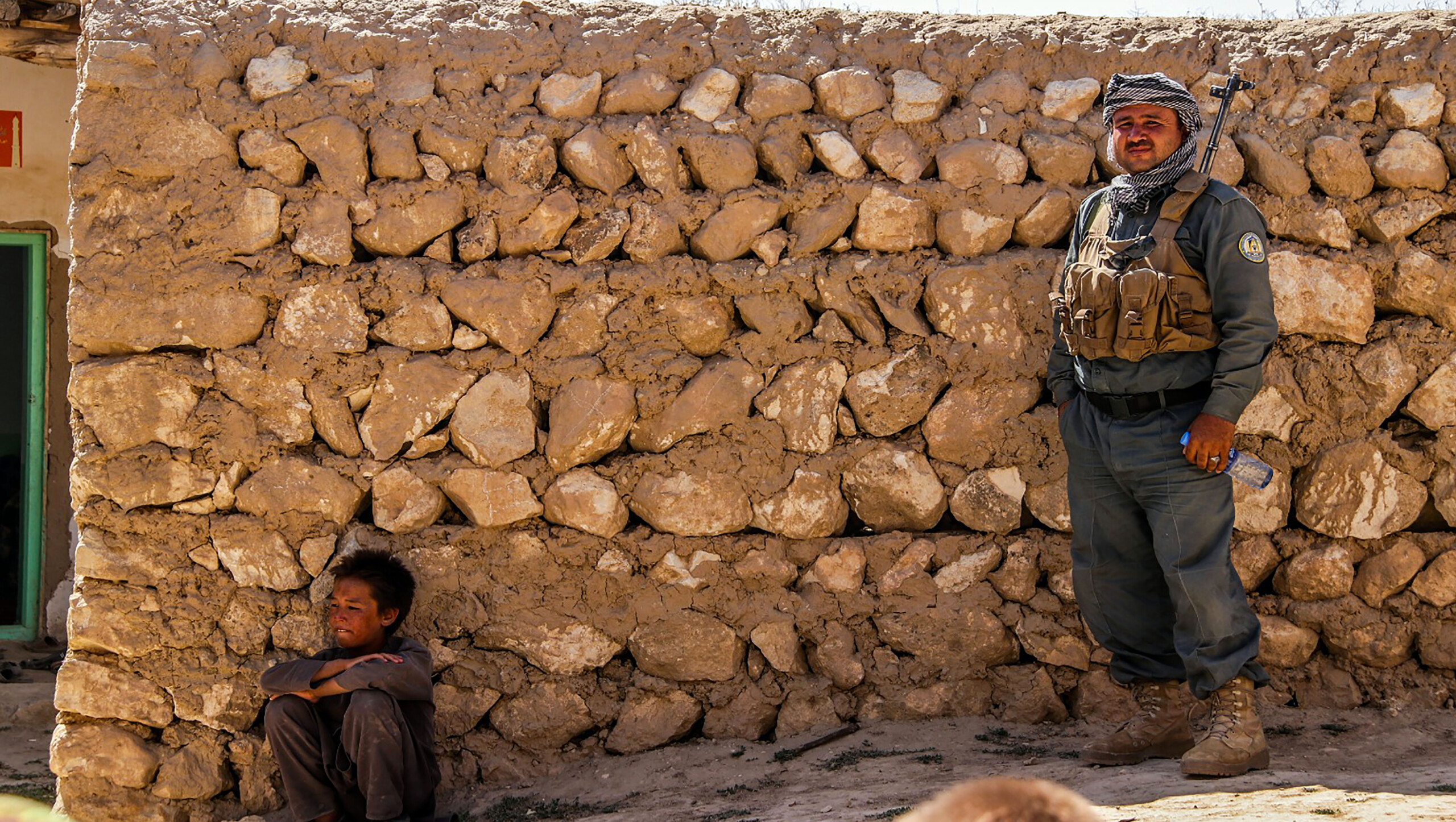The U.S. withdraw from Afghanistan but the country is devastated

Kandahar in the Southern Region of Afghanistan. Photographer: Trent Inness. (Shutterstock, 2020).
The U.S. withdraw from Afghanistan but the country is devastated
On April 25, the U.S. troops officially started their withdrawal from Afghanistan. The United States’ withdrawal is supposed to put an end to a war that has lasted two whole decades and that, along with frequent natural disasters, malnutrition, and the COVID-19 pandemic has devastated the people of Afghanistan. Hundreds of thousands of people are forced to leave their homes every year, by a conflict that is causing widespread psychological as well as physical harm (OCHA, 2020a; Zucchino, 2021). The number of people requiring humanitarian help has doubled since the beginning of 2020 from approximately 9.4 million people to 18.4 million (OCHA, 2021a).
The bravery of Afghan women
Despite the United States’ withdrawal, the attacks on civilians, government force members, journalists, activists, and human rights workers do not seem to stop. In the first quarter of the year, 573 Afghan civilians were murdered (Aljazeera, 2021). Only in April, 301 pro-government forces and 89 civilians were killed (Abed, 2021).
Also, for humanitarian workers it is becoming increasingly dangerous to work in Afghanistan. The situation is particularly difficult for women who are frequently chosen as targets of attacks. At the beginning of March, three Afghan women working for a local news outlet were brutally killed (Ghazi & Gibbons-Neff; 2021). In late March, four polio vaccinators, three of which women, working for UNICEF were murdered in the Nangarhar province (UNICEF, 2021).
Mark Ward, International Medical Corps (IMC) Country Director in Afghanistan, told Humanexus: “The bravery of Afghan women right now is just extraordinary.” IMC is a global, non-profit, humanitarian aid organization operating in 14 provinces of Afghanistan. The organization counts several hundreds of women among its members. To safeguard them, IMC decided to introduce a policy so that staff members do not need to provide any permission in case they feel unsafe and decide to stay at home. Despite this policy, none of the female members has stopped helping: “There is every reason for them to say: ‘I’m staying home,’ but they don’t say that. They keep working, they keep taking risks. [..] They never get any attention, they never get any credit, they only get attacked. But they are not giving up. And we would give up if we did not have these women working with us,” said Mr. Ward.
Child abuse, starvation, and Covid-19
Afghanistan is now the second country for the highest number of people in emergency food insecurity, with a total of 5.5 million people (OCHA, 2020a). The causes that brought this are multiple and can be found in the many natural disasters that hit the country in the last decades, the rampant unemployment, and the COVID-19 pandemic that caused an increase in the food prices (OCHA, 2021b; UN News, 2021). Afghanistan is particularly prone to natural disasters. Nearly all its 34 provinces have been hit by a natural disaster in the last 34 years (UN News, 2021). In addition, Afghanistan is facing rates of warming higher than the global average making the country’s rainfall regime extremely unpredictable. Water resources are highly uncertain, and the risk of drought keeps increasing, making food resources extremely unpredictable (OCHA, 2020b).
As usual, children are the most vulnerable. Nearly half of the children under age 5 are projected to face acute malnutrition in 2021 (OCHA, 2021b). Due to the continuous conflicts and widespread poverty, many children aged between 12-17 flee from Afghanistan. Many end up as undocumented workers in Iran, while others try to reach Europe and Turkey with their families but, if detained, they will have to return to their country of origin. These returns journeys are highly risky, as young people are often separated from their families and becoming easy targets for smugglers and human traffickers (UNICEF, 2017). However, life in Afghanistan is not easier for children. Despite being illegal, one third of Afghan girls get married before their 18th birthday. Many young girls in the country face domestic abuse and sexual violence. Boys, on the other hand, are often recruited into armed conflicts at a very young age and have to suffer sexual exploitation. Children often have to endure risky labor practices, are exposed to violence at home, and are frequently in contact with landmines (UNICEF, 2017).
Some of these children end up in hospitals which are frequently overcrowded with wounded patients injured by landmines and airstrikes. The south of the country has a lack of hospital facilities and approximately 50% of those in need of immediate help do not make it in time to reach the hospital due to excessive bleeding. Women and children are the highest number of patients (ICRC, 2020). COVID-19 has worsened the situation. This is one of the main concerns for IMC, as an increase in COVID-19 numbers would cause a huge demand in the health service, affecting IMC workload and staff. According to Mr. Ward many people tend to treat themselves at home instead of accessing health facilities. To help with the fight against COVID-19, IMC is trying to bring awareness on the many benefits of vaccination. – “The vaccine is here now, but there is a lot of reluctance to get it. We are trying to explain at the community level why the vaccine is a good idea,” said Mr. Ward.
United States’ withdrawal
After 20 years of war, in February 2020, President Trump signed an agreement with the Taliban declaring that all U.S. troops will be withdrawn from the Afghan territories within May 1, 2021. The withdrawal officially began in April 2021 and President Biden announced that by September 11, all U.S. troops would withdraw from Afghanistan (Zucchino, 2021). The peace talks started in September 2020 but the process towards peace has been both bloody and uncertain. The months of October and November, following the beginning of the peace talks, saw an increase in the number of attacks and casualties (OCHA, 2020a). Mr. Ward told Humanexus: “Our community-based approach is very effective with the Taliban.” However, there are some groups that, unlike the Taliban, do not have any relation with local communities and that may be behind the many attacks. “We worried about that. Everybody worries about that. But they were a problem before, and they will be a problem in the future. They are not part of this peace process, they are just trouble-makers,” said Mr. Ward.
Many humanitarian organizations had to face direct attacks on their members (UNICEF, 2021). Community acceptance has hugely helped in protecting IMC’s staff members and keeping their program going. IMC Deputy Country Director, Dr. Shamail Azimi told Humanexus: “All our programs are community-based. So, the people trust us.” IMC workers are often very close to the community they are helping at the point that community members know them by name and vice-versa. “It shows how much we have a close relation with the community,” said Dr. Azimi.
Despite the peace talks between the United States and the Taliban has started, the future of Afghanistan is still uncertain. What is certain is the bravery of the many female humanitarian workers risking their lives every day to help the people of Afghanistan.

Article by
Cristina Miceli

Categories
Afghanistan, Asia, Categories, Conflict Resolution, Countries, Human rights, News


